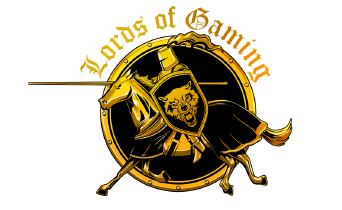The next generation of consoles is shaping up to be drastically different from before. Matt Booty, head of Xbox Game Studios, announced that the Xbox Series X will not launch with exclusive games. The news shocked video game journalists when it shouldn’t have. The definition of console generations is now being rewritten.
Redefining Console Generations
Traditionally, when new consoles launched, they essentially placed a reset for consumers and developers alike. This meant that older games would not work on the new system, and developers had new hardware to develop for. Developers often complained that releasing games on new hardware was financially limiting, because of a smaller install base.
Usually, during the first couple of years of a new console generation, companies would also release the game on the older systems as well, in order to recoup some of the development costs. Games such as Watchdogs and Middle-Earth: Shadow of Mordor were also released on PlayStation 3 and Xbox 360, but were compromised due to technical limitations of the older consoles. Fast forward to 2020 and things have changed substantially.

Middle-Earth: Shadow of Mordor was also released on last-gen consoles but without its renowned Nemesis System.
Microsoft’s decision to not release Xbox Series X exclusives was clearly a pro-consumer move. Those who recently picked up an Xbox One S or Xbox One X can still enjoy upcoming Xbox exclusives a couple more years. For those who follow the video game industry closely know that Microsoft has been hinting at this for a while now. The decision clearly shows that Microsoft is transitioning the Xbox console into an ecosystem.
Platform Agnostic
The Xbox brand is platform agnostic. It doesn’t matter where you play Xbox games, as long as you play them, whether it’s on an Xbox console, PC or xCloud. All these platforms encompass the Xbox ecosystem. The main product is obviously the games, but the ecosystem also heavily relies on subscription services like Xbox Live Gold and Xbox Game Pass. Other companies have already set up their ecosystems or are hard at work to develop their own.
We are in an era of game services. Steam is pretty much ubiquitous with PC gaming. Epic launched its store to much backlash but is clearly growing. Last year, Ubisoft launched its own subscription service, Uplay+, while EA continues to develop its own ecosystems via EA Access and Origin Access. Although Sony said it plans to release exclusive games on its upcoming PlayStation 5, it’s still unknown whether that could change later on.
Sony is testing the waters when it comes to expanding its ecosystem. In October 2019, the company announced major changes to its game streaming/subscription service PS Now. The service received a hefty discount and would be available on PC for the first time. The discounted fee places it in line with Xbox Game Pass.

MLB The Show is expected to release to multiple platforms soon.
The company also managed to shock some of their fans after sources said that PS4 exclusive, Horizon Zero Dawn, could make its way to PC. Acclaimed baseball simulator, MLB: The Show, which is developed by Sony Interactive Entertainment San Diego Studio and released exclusively on PlayStation consoles since the late 1990s, will make its way to other platforms in the future. This shows that Sony is indeed dipping its toes in the ecosystem pool.
Building Value, Competing Ecosystems
The ninth generation of consoles will see ecosystems battle it out for the first time. Purchasing digital games and services like PS Now and Xbox Game Pass means that customers will be “locked” into an ecosystem. Joining or moving to another ecosystem will cost money, and now the conversation is about value proposition from these lucrative services.
The latest frontier in the video game industry isn’t what’s in the box, but the ecosystem itself. Developing reoccurring revenue streams is the modern-day gold rush for the video game industry. In order to increase the value proposition, an ecosystem needs content. This is why several companies have gone on a developer buying spree.
2019 saw Epic acquire Rocket League developer Psyonix, while Sony bought out Insomniac Games. However, Microsoft was ahead of the pack when it began building up its repertoire of studios. Since 2018, Microsoft acquired multiple studios from across the world and rebranded its game division to Xbox Game Studios. Currently, there are 15 developers within the Xbox Game Studio umbrella, with the possibility of more acquisitions.

Xbox Game Studios is now comprised of 15 outlets, many of whom were acquisitions from the past two years.
The war of ecosystems is heating up fast and expect immense competition when the next generation consoles release this year. There is immense revenue-generating potential from subscription services, you can expect a tooth and nail fight between different companies to get customers to subscribe to their services. In the end, this is great for consumers, as companies will seek to increase the value proposition of their services. It may be different from previous console generations, but the excitement is still there.


